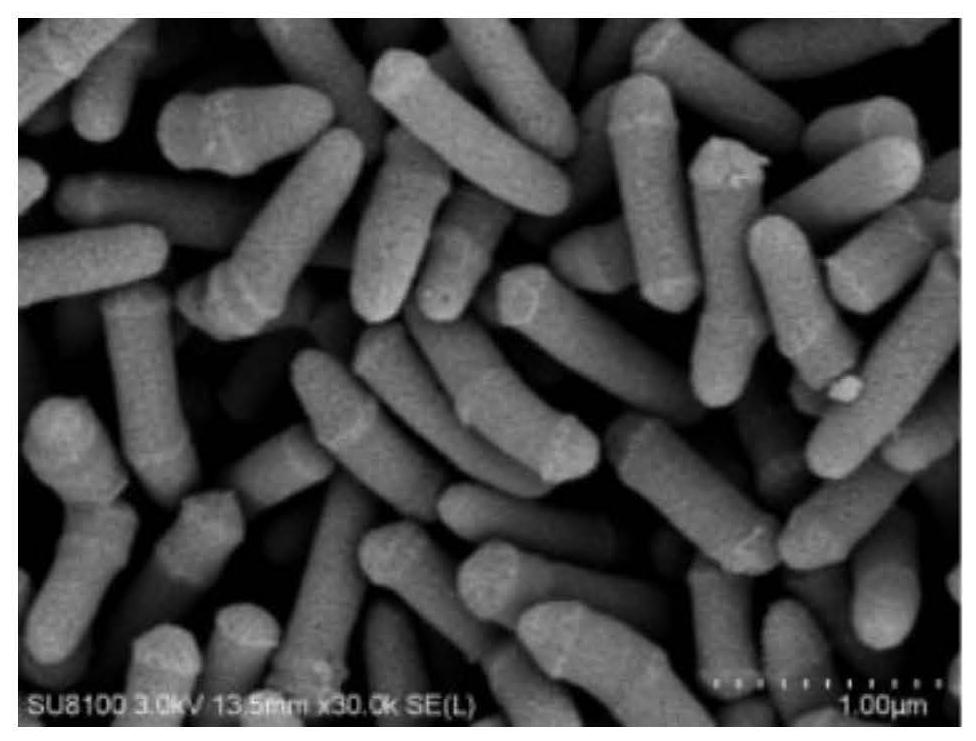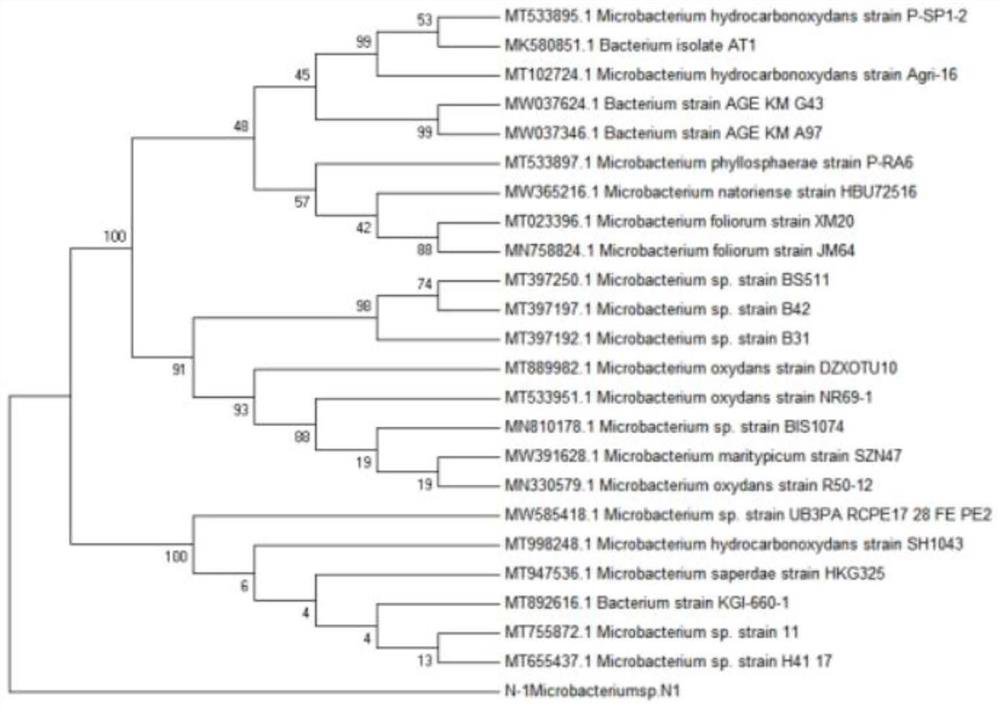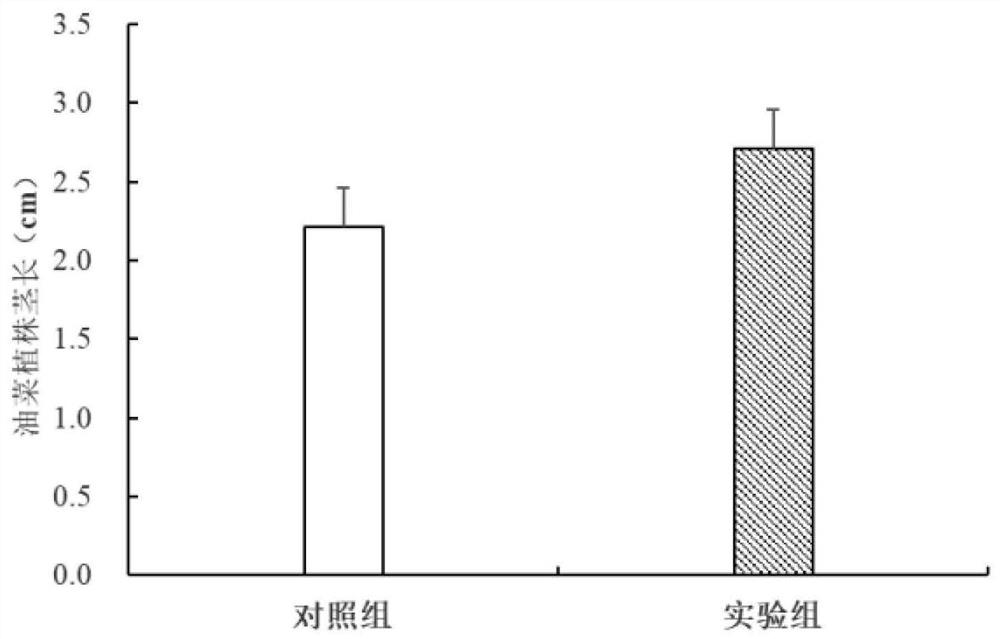Salt-tolerant growth-promoting microbacterium, application thereof and viable bacterium preparation based on salt-tolerant growth-promoting microbacterium
A microbacteria, salt-tolerant technology, applied in the field of salt-tolerant rhizosphere growth-promoting microbacteria, can solve the problems of lack of seedlings and low seed germination rate
- Summary
- Abstract
- Description
- Claims
- Application Information
AI Technical Summary
Problems solved by technology
Method used
Image
Examples
Embodiment 1
[0060] Embodiment 1: surface disinfection of rapeseed
[0061] Select rapeseed seeds with full grains, soak and disinfect the seeds with 5% NaClO for 5 minutes, and then rinse them with sterile water for 5–6 times. The surface-sterilized seeds were inoculated on the surface of 1 / 2 MS medium, and cultured in the dark at 22°C for 2 days to obtain germinated sterile seedlings.
Embodiment 2
[0062] Embodiment 2: Bacterial strain N1-rape co-cultivation test
[0063] The germinated rapeseeds were transferred to the ZM96 bacterial suspension cultured in Ashby nitrogen-free medium, and co-cultivated at 120rpm and 22°C for 6h (the rapeseed seeds of the control group were inoculated into sterile Ashby liquid medium for shaking culture), and finally the The above-mentioned plant seeds were transferred to a tissue culture bottle containing 50g of sterilized vermiculite (adding 1 / 2MS+120mmol / L NaCl of 60mL) for cultivation (temperature 22°C, relative humidity 70%, 16h light cultivation (2000Lx) / 8h dark nourish). Ten seeds were evenly planted in each tissue culture bottle, and there were 10 replicates in each of the experimental group and the control group.
Embodiment 3
[0064] Embodiment 3: test result record analysis
[0065] Observe and record the growth of rapeseed every day, collect the plants after 20 days of cultivation and measure the root length, plant height and biomass of the plants, and take the average value to draw a histogram, as shown in Figure 3-6 As shown, the saline-alkali soil cultivation test research showed that the biomass, root length and plant height of the test group plants inoculated with the N1 strain in the rhizosphere of rapeseed were significantly better than the control group rape plants not inoculated with the N1 strain under salt stress.
PUM
 Login to View More
Login to View More Abstract
Description
Claims
Application Information
 Login to View More
Login to View More - R&D
- Intellectual Property
- Life Sciences
- Materials
- Tech Scout
- Unparalleled Data Quality
- Higher Quality Content
- 60% Fewer Hallucinations
Browse by: Latest US Patents, China's latest patents, Technical Efficacy Thesaurus, Application Domain, Technology Topic, Popular Technical Reports.
© 2025 PatSnap. All rights reserved.Legal|Privacy policy|Modern Slavery Act Transparency Statement|Sitemap|About US| Contact US: help@patsnap.com



